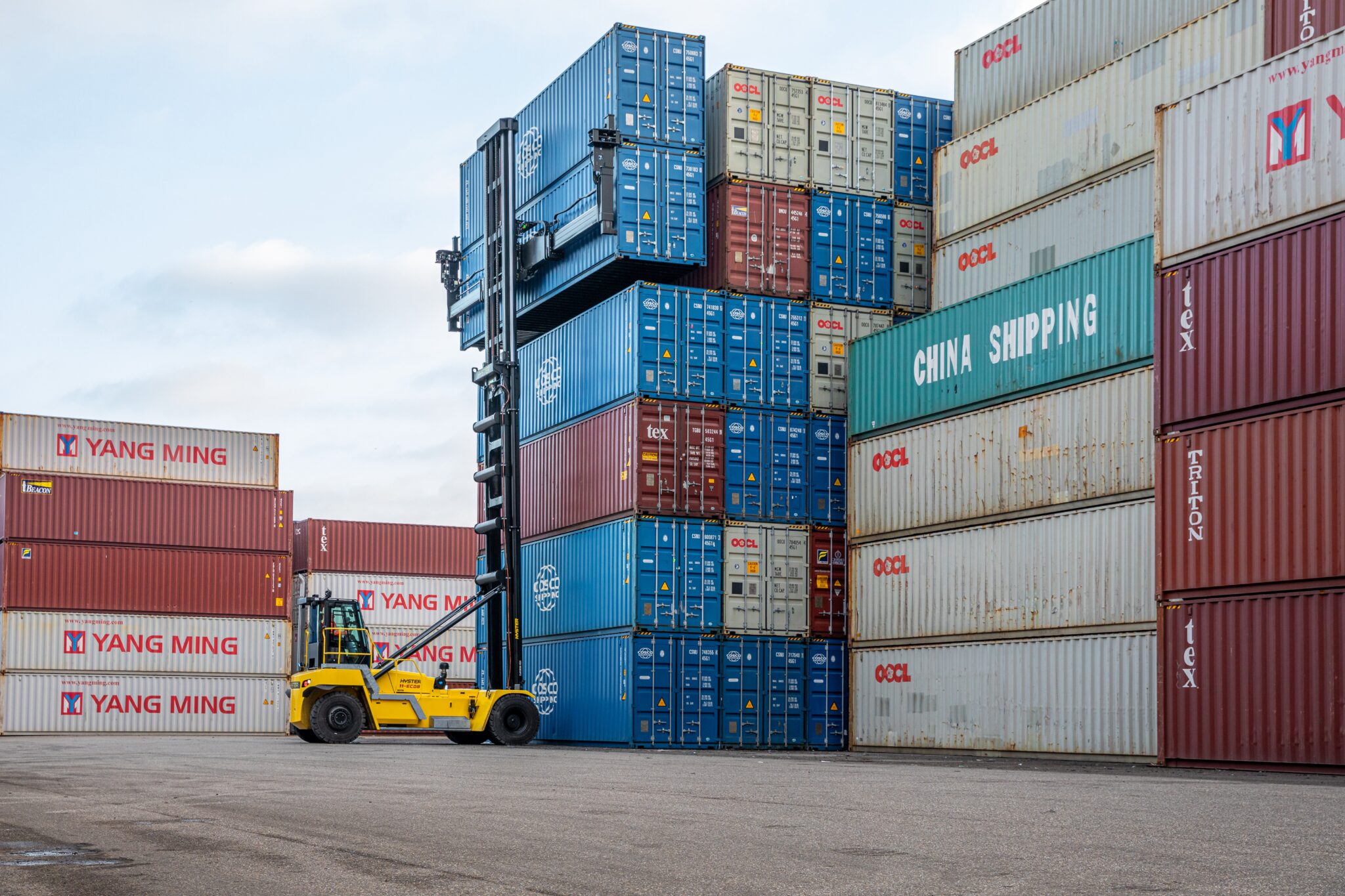The plant in Nijmegen, the Netherlands, where Hyster® Big Trucks are produced is celebrating its 70th year in 2023.
In 1952, Hyster created its first European plant in Nijmegen, with the first Hyster Big Trucks manufactured at the factory from January 1953. An official event was held to open the site in October 1953, attended by a number of dignitaries and more than 500 guests. This celebration saw the Mayor of Nijmegen cut the ribbon at the plant’s gates while riding a Hyster® lift truck.
To this day, the Nijmegen plant stands on the same site. However, it is now the global centre of design, development, and testing for Hyster Big Trucks globally. This includes the production of heavy-duty forklifts, with capacities from 8 – 48 tonnes, Hyster Empty Container Handlers, and the Hyster RS46 Reach Stacker, as well as support services for the entire Big Truck range.
The Research and Development centre in Nijmegen has always been dedicated to the next generation of Big Trucks. In recent years, this has enabled Hyster to introduce a new cabin, available across most Big Trucks, which is packed with ergonomic, productivity-enhancing features in an efficient, cockpit-style design. It has also seen the launch of Big Truck engines compliant with the Stage V emissions standards, and solutions that enable Big Trucks to utilise HVO100 fuel, both of which support businesses to reduce their CO2 tailpipe emissions.
Most notably, the R&D centre in Nijmegen has seen an increased focus on supporting the transition to zero-emission port equipment, leveraging lithium-ion battery and hydrogen fuel cell technologies in particular. This is a long way from the ‘Karry Kranes’ and forklifts produced in the plant’s first year – mobile equipment based on tractor frames, that may seem primitive by today’s standards.
Key projects from the team in Nijmegen include a hydrogen fuel cell-powered container handler, currently in testing at the Port of Los Angeles, an Empty Container Handler powered by hydrogen fuel cells for Hamburger Hafen und Logistik AG, Germany, and a fuel-cell powered Reach Stacker in development for the Port of Valencia, Spain. In addition, Hyster is developing a 100% battery-powered Hyster Empty Container Handler for use by CARU Containers in Rotterdam, the Netherlands. Earlier this year, Hyster also previewed a zero-emission Terminal Tractor which will be powered by Nuvera hydrogen fuel cells and is in development in collaboration with yard truck brand Capacity.
“The plant in Nijmegen has always aimed to deliver dependable Hyster Big Trucks that meet the needs of tough applications and demanding working conditions. That we are still here, and still innovating new solutions, 70 years on is testament to the quality of our manufacturing, and to how well we understand our customers’ ever-changing challenges,” says Peter van Sommeren, Senior Director Manufacturing and European Parts Ops.



